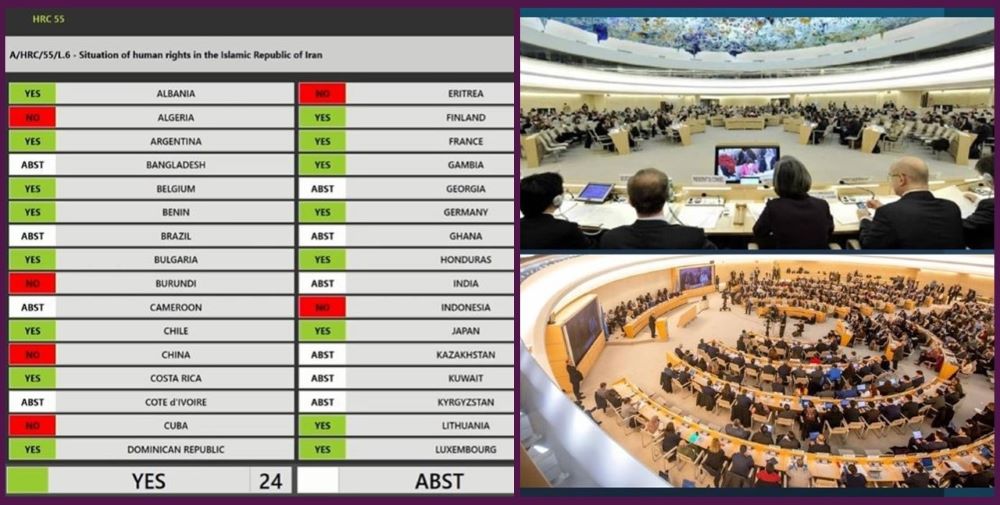
The United Nations Human Rights Council (UNHRC) has voted to renew the mandates of the Fact-Finding Mission (FFM) on Iran and the Special Rapporteur on Iran’s human rights situation. This decision was made during a closely watched session held in Geneva, Switzerland on April 4, 2024.
#HRC55 | Draft resolution A/HRC/55/L.6 on the situation of human rights in the Islamic Republic of #Iran was ADOPTED. pic.twitter.com/V32cNWak58
— United Nations Human Rights Council | #HRC55 (@UN_HRC) April 4, 2024
The renewal comes after the FFM, established in November 2022 during the Iran uprising, released its first report on March 8th. This report detailed widespread and sustained human rights violations by the Iranian regime during the 2022 protests. Notably, the violations disproportionately targeted women, girls, children, and ethnic and religious minorities.
The findings raised significant global concerns and calls for further investigation and accountability. The Iranian Resistance has declared the extension of these mandates an “urgent necessity” in fighting crimes against humanity and upholding universal human rights values.
The FFM’s report confirmed that the regime committed “crimes against humanity” during the 2022 uprising. It also highlighted the 1988 massacre of 30,000 political prisoners, which the Special Rapporteur described as an ongoing crime against humanity in February. Perpetrators of the 1988 massacre include current officials like Ebrahim Raisi, Gholam-Hossein Mohseni-Eje’i, and Ali Khamenei.
Mrs. Maryam Rajavi, President-elect of the National Council of Resistance of Iran (NCRI), stated that the extension of the FFM and Special Rapporteur mandates is “a necessary step in confronting the systematic violations of human rights and crimes against humanity committed by the Iranian regime.” She emphasized that this must be complemented by referring the regime’s crimes to the UN Security Council.
The extension of the mandates of the @UN_HRC International Fact-Finding Mission and the Special Rapporteur on the situation of human rights in #Iran is a necessary step in confronting the systematic violations of #HumanRights and crimes against humanity committed by the Iranian… pic.twitter.com/MgogzNIm0F
— Maryam Rajavi (@Maryam_Rajavi) April 4, 2024
Mrs. Rajavi highlighted the regime’s long history of crimes against humanity and genocide over four decades, including the massacres of Kurdish people, mass executions in the 1980s, the 1988 massacre of political prisoners, killings of Iranian opposition members in camps like Ashraf and Liberty, the November 2019 protest crackdown, and violence against people in the Middle East. She noted that current leaders like Khamenei, Raisi, Ejei, and Ghalibaf have been involved in these crimes and must face justice.